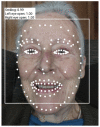LONG-REMI: An AI-Based Technological Application to Promote Healthy Mental Longevity Grounded in Reminiscence Therapy
- PMID: 35627535
- PMCID: PMC9141720
- DOI: 10.3390/ijerph19105997
LONG-REMI: An AI-Based Technological Application to Promote Healthy Mental Longevity Grounded in Reminiscence Therapy
Abstract
Reminiscence therapy (RT) consists of thinking about one's own experiences through the presentation of memory-facilitating stimuli, and it has as its fundamental axis the activation of emotions. An innovative way of offering RT involves the use of technology-assisted applications, which must also satisfy the needs of the user. This study aimed to develop an AI-based computer application that recreates RT in a personalized way, meeting the characteristics of RT guided by a therapist or a caregiver. The material guiding RT focuses on intangible cultural heritage. The application incorporates facial expression analysis and reinforcement learning techniques, with the aim of identifying the user's emotions and, with them, guiding the computer system that emulates RT dynamically and in real time. A pilot study was carried out at five senior centers in Barcelona and Portugal. The results obtained are very positive, showing high user satisfaction. Moreover, the results indicate that the high frequency of positive emotions increased in the participants at the end of the intervention, while the low frequencies of negative emotions were maintained at the end of the intervention.
Keywords: cognitive impairment; emotions recognition; face tracking; intangible cultural heritage; reinforcement learning; reminiscence therapy.
Conflict of interest statement
The authors declare no conflict of interest.
Figures



References
-
- Eurostat Increase in the Share of the Population Aged 65 Years or over between 2011 and 2021. [(accessed on 25 January 2022)]. Available online: https://ec.europa.eu/eurostat/statistics-explained/index.php?title=Popul....
-
- Daviglus M.L., Bell C.C., Berrettini W., Bowen P.E., Connolly E.S., Jr., Cox N.J., Dunbar-Jacob J.M., Granieri E.C., Hunt G., McGarry K., et al. National Institutes of Health State-of the-Science Conference statement: Preventing alzheimer disease and cognitive decline. Ann. Intern. Med. 2010;153:176–181. doi: 10.7326/0003-4819-153-3-201008030-00260. - DOI - PubMed
Publication types
MeSH terms
LinkOut - more resources
Full Text Sources

